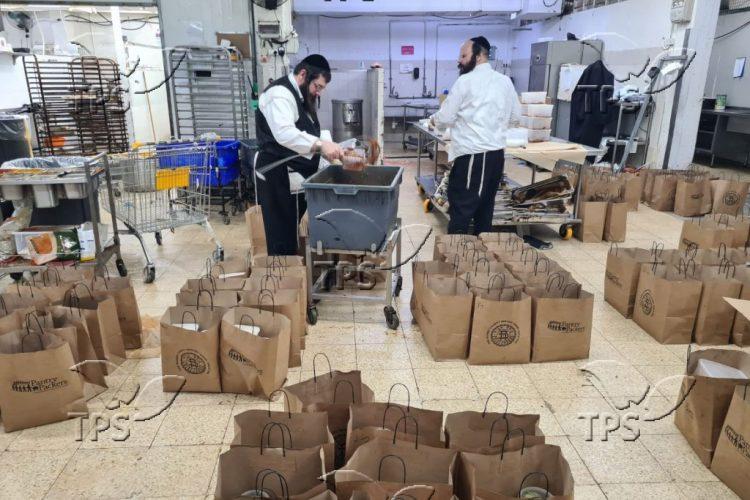Life in Limbo: Struggling Israeli Evacuees Find Charitable Support
Jerusalem, 27 November, 2023 (TPS-IL) -- After ten days of missile barrages in Ashkelon, Mali Weiner packed one suitcase per family member and brought her four children to Jerusalem.
They’re staying in a cramped two-bedroom apartment that someone kindly made available. But the women’s apparel store back in Ashkelon that she owns remains closed. After 52 days of war, the Wieners — and thousands of other Israeli evacuees — are stretched to their financial limits.
“We’re living out of suitcases, the kids are out of school, and the store is closed, so we have virtually no income right now,” Wiener said. “We managed okay for the first month, and people were wonderfully supportive all along, but now that we’re deep into the second month, it’s getting much tougher.”
While the government provided lodgings and meals for thousands of evacuees, many others fled their homes and needed to find lodgings on their own.
Rising to the aid of thousands of these evacuees are Colel Chabad, the Olga and Lev Leviev Foundation, the World Central Kitchen, and The Jewish Federations of North America (JFNA), which represents nearly 400 independent Jewish communities. These organizations united to support Israel’s evacuees, and in the past two weeks alone have sponsored 2 million shekels ($535,000) in meals and grocery store vouchers.
Evacuees from Ashkelon, Ashkelon, Maale Yosef, Ofakim, Ma’alot-Tarshiha, Netivot and Sdot Hanegev who are currently lodging in Jerusalem, Tel Aviv, Bnei Brak, Herzliya, Lod, Modi’in Illit, Netanya, Petach Tikva, and Rishon Letzion are receiving daily help in the form of delicious hot meals and gift cards enabling them to purchase food and household staples.
“The meals and vouchers that we just started receiving are a huge help,” Weiner said.
Since the outbreak of war, the organizations all acted independently to support Israel’s soldiers, reservists and their families, and to support families of hostages. But they’ve now joined forces to assist evacuees by working in conjunction with local restaurants and kitchens across the country.
Yaara Sanders, 34, is an American immigrant and resident of Sdot Hanegev, whose husband, Zack, was called up for reserve duty.
For the first ten days of the war, Sanders kept herself and her three daughters mostly locked in the house and close to their safe room. But when a rocket fell directly across the street from their apartment building, Yaara gave up and evacuated herself and her daughters, ages 3-8, to the safer area of Herzliya.
“This last month has been grueling. The girls don’t have their regular beds, schools, extra-curricular activities, friends or toys. With my husband away, I’m busy occupying them and trying to home school them a bit so they don’t fall too behind,” Sanders said.
“It’s stressful, it’s lonely. I have only very basic cooking facilities here, so these meals have been a lifesaver, a hug from the greater Jewish community. I want to say thank you,” she said.
The initiative, which was launched just two weeks ago, distributes thousands of meals daily to families of evacuees. In Bnei Brak alone, over 1,000 meals are delivered each day. In addition, hundreds of gift cards have been distributed to displaced families who can use them to purchase food.
Colel Chabad, runs a network of soup kitchens, food banks and daycare centers, and its programs provide support widows, orphan and immigrants. Now the organization is helping evacuees.
“Every day, we hear of more families that are now impoverished and children who go to sleep hungry because their parents are currently unemployed and can’t afford to buy food,” said Colel Chabad director Rabbi Shalom Duchman. “We’re doing everything we can to provide for their needs while preserving their dignity.”







